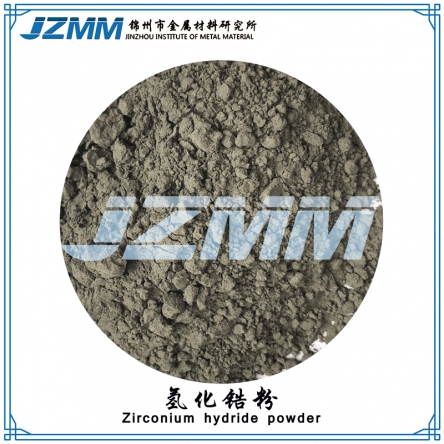
Ultrafine alumina powder is an important and indispensable material in modern industry. After ultrafine alumina powder is refined, its surface electronic structure and crystal structure are changed, resulting in surface effect, small size effect, quantum effect and macroscopic quantum tunneling effect which are not found in macroscopic objects. And has high strength, high hardness, wear resistance, corrosion resistance, high temperature resistance, good insulation, large surface area and other excellent characteristics, has been in the biological ceramics, precision ceramics, chemical catalysts, rare earth trichromatic phosphors, integrated circuit chips, aviation light source devices and other aspects have been widely used.
1. Ceramic materials and composites
Adding ultrafine alumina powder to conventional ceramics can improve the toughness of ceramics and reduce the sintering temperature. Because of the superplasticity of ultrafine alumina powder, it can solve the limitation of the application range of low-temperature plastics, so it has been widely used in low-temperature plastic ceramics.
New type of ceramic composite and aluminum alloy composite with special function can be synthesized by using ultrafine alumina powder. Among them, the SiC-Al2O3 ultrafin composite is more significant. Its bending strength increases from 300-400MPa to 1GPa from single-phase SiC ceramic, and the fracture toughness of the material also increases by more than 40%.
Ultrafine alumina can also be used as dispersion strengthening and additives, such as cast iron grinding tools when using ultrafine alumina powder as metamorphism and nucleation, wear resistance can be increased by several times.

2. Surface protective layer materials
Composed of ultrafine aluminum oxide particles new thin transparent material, coating on metal, ceramic, plastic and hard alloy on the surface, can improve the surface hardness, corrosion resistance and wear resistance, and have anti-fouling, dustproof, waterproof, and other functions, can solve modern industrial production of easy worn parts, corrosion pipeline easily and indirect effect the precision of equipment service life and processing products, etc. Therefore, it can be used for surface protection of machinery, cutting tools, chemical pipelines, etc.
The ultra-fine alumina ceramic coating tool combines the advantages of ceramic materials and cemented carbide materials, has similar strength and toughness with cemented carbide materials at the same time, the wear resistance greatly improved, can reach several times to dozens of times of the uncoated tool, and significantly improve the processing efficiency.
3, catalyst and its carrier
Superfine alumina pore size distribution is good, the entrance is high, the surface area of up to 60-400 m2 / g, surface atomic coordination not congruent cause surface there are a lot of mismatch, owe oxygen keys, and with the decrease of the particle size, surface smooth degree, formed a bumpy atomic level, increase the contact surface chemical reaction, is the ideal catalyst or catalyst carrier, The HDS activity of co-Mo catalyst supported by ultrafine alumina particles is higher than that of co-Mo catalyst supported by ordinary alumina.
Catalytic and carrier applications are mainly γ-Al2O3, widely used in automobile exhaust purification, catalytic combustion, hydrodesulfurization, petroleum refining, polymer synthesis, etc.
4. Biological and medical materials
Ultrafine alumina bioceramics basically does not corrosion in the physiological environment, and has good structural compatibility. The new tissue grows into the porous ceramic surface and connects the pores. The bonding strength between the tissue and the body is high, and has the characteristics of high strength, small friction coefficient and low wear rate. Therefore, it has been widely applied in clinical practice, and has been used in the manufacture of load-bearing artificial bone, joint prostheses, root implants, bone splints and internal fixation devices, etc., and has also been successfully expanded alveolar ridge, reconstructed maxillofacial bone defects, orthopaedic and repair of facial features, etc.
At present, the core research is on soft tissue materials such as artificial trachea, as well as bioceramics materials for simulating biological body functions and artificial intelligence.
5. Semiconductor materials
Ultrafine alumina powder has a large surface area and interface, which is very sensitive to the moisture in the external environment. The change of ambient temperature rapidly causes the change of ion valence and electron transport on the surface or interface. In the humidity range of 30-80%, the AC impedance of ultra-fine alumina linear change, fast response speed, high reliability, high sensitivity, long anti-aging life, anti-corrosion and pollution of other gases, in the dust and smoke environment can maintain the detection accuracy, is an ideal humidity sensor and humidity thermometer material.
In addition, ultra-fine alumina is a common substrate material, has good electrical insulation, chemical durability, heat resistance, high dielectric constant, smooth surface, low cost and other advantages, can be used in semiconductor devices and large-scale integrated circuit substrate materials, widely used in microelectronics, electronics and information industry.
6. Optical materials
Nanoscale alumina absorbs ultraviolet light and produces wavelengths that are related to the particle size when excited by certain wavelengths of light. It can be used as a protective coating for the phosphor layer in the compact fluorescent lamp, and can also be used as a luminescent material for the fluorescent lamp by combining with the rare earth phosphor to prolong the lamp's life.
Alumina granules coated with a harmless polymer can also be added to sunscreens and cosmetics.
It is because ultrafine alumina powder has a series of excellent electrical, magnetic, optical, mechanical and chemical macroscopic properties compared with conventional particles that the preparation of ultrafine alumina powder with high purity has been regarded as one of the main research directions in the field of new materials in recent years.